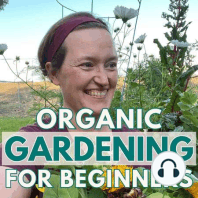19 min listen

035: Raised Bed vs. In-Ground Gardens: Which Is Best For You?
FromOrganic Gardening For Beginners: Tips To Plan And Grow Your Own Productive Garden
035: Raised Bed vs. In-Ground Gardens: Which Is Best For You?
FromOrganic Gardening For Beginners: Tips To Plan And Grow Your Own Productive Garden
ratings:
Length:
27 minutes
Released:
Dec 12, 2023
Format:
Podcast episode
Description
Title: Raised Beds vs In-Ground Gardening: A Comprehensive Guide to Choosing the Best Method for YouWelcome to another episode of Organic Gardening for Beginners! Today, we are going to delve into the garden-starting world of raised beds and in-ground gardening. I'll share insights on the advantages and disadvantages of these two popular gardening methods so you can choose the right method for your space.Raised Beds vs In-Ground Gardening: Pros and ConsRaised bed gardening offers numerous advantages. For starters, the setup is generally faster, and you have more control over soil quality. This style also promises improved soil quality and easier maintenance. Raised beds can also drain and warm up faster in the spring, allowing for earlier planting. However, these benefits come with a few challenges, the main one being the cost and effort required to set them up. On the other hand, in-ground gardening is a budget-friendly option that integrates with your existing landscape. Though often underestimated, this method can be just as effective as raised beds. However, it's essential to note that in-ground gardens can be more vulnerable to flooding, especially in rainy areas, and may be more susceptible to invasive weeds or grasses. Tips for a Successful Garden, No Matter the MethodRegardless of the gardening method you choose, a few tips will help it thrive.Composting is a vital practice that enriches your soil, improves its texture and structure, and boosts its nutrient content. Mulching is another beneficial practice that suppresses weeds, retains moisture, prevents erosion, and adds organic matter to the soil over time. Lastly, planting intensively can help minimize weeds and maximize your space. Try succession planting and companion planting for two ways to make sure you always have something growing in your garden. Happy gardening!? Questions? Email me at jessica@homegrownfoodandflowers.comPlease leave a review on Apple Podcasts. It helps new gardeners find the show ?? Website and Blog: Homegrown Food and Flowers? Instagram: https://www.instagram.com/homegrownfoodandflowers/
Released:
Dec 12, 2023
Format:
Podcast episode
Titles in the series (54)
012: Best (Free!) Organic Mulches For The Home Garden by Organic Gardening For Beginners: Tips To Plan And Grow Your Own Productive Garden